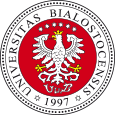Seminarium wydziałowe (online)
Dnia 2020-12-01 o godzinie 14:15 odbędzie się wykład (seminarium odbędzie się „online” z wykorzystaniem platformy ZOOM), na którym prof. Bert Koopmans z Eindhoven University of Technology, The Netherlands (IEEE MAGNETICS 2020 DISTINGUISHED LECTURER) wygłosi wykład pt:
„Femto-magnetism meets spintronics: Towards integrated magneto-photonics”
Serdecznie zapraszamy
Andrzej Maziewski
Bert Koopmans
Femto-magnetism meets spintronics: Towards integrated magneto-photonics
Eindhoven University of Technology, The Netherlands
Novel schemes for optically controlling ferromagnetic order at a femtosecond time scale [1] receive great scientific interest. In the strongly non-equilibrium regime, it has become possible not only to quench magnetic order, but even to deterministically switch the magnetic state by a single femtosecond laser pulses. Moreover, it has been shown that pulsed laser excitation can induce spin currents over several to tens of nanometers. This development triggered a merge of the fields of ‘femto-magnetism’ and spintronics – opening up a fascinating playground for novel physical phenomena. In this lecture I will discuss the underlying principles, but also envision their exploitation in THz magnonics and integrated spintronic-photonic memories.
After a brief review of the field, mechanisms for ultrafast loss of magnetic order upon fs laser heating [2] as well as all-optical switching will be explained. Next, different processes that give rise to laser-induced spin currents will be distinguished. In particular I will address experiments that have demonstrated laser-induced spin transfer torque on a free magnetic layer [3]. These fs spin currents are absorbed within a few nanometers, providing ideal conditions for exciting and exploring THz spin waves [4]. Finally, it will be argued that synthetic, layered ferrimagnets provide an ideal platform for combining fs optical control with advanced spintronic functionality. It will be shown how magnetic bits can be written ‘on-the-fly’ by fs laser pulses in a so-called magnetic racetrack, where they are immediately transported by a dc current [5]. Such schemes may lead to a novel class of integrated photonics, in which information is transferred back and forth between the photonic and magnetic domain without any intermediate electronic steps.
• [1] E.E. Fullerton, H.A. Dürr, A.V. Kimel and B. Koopmans, Chapter VI “Interfacial effects in ultrafast magnetization dynamics”, in F. Hellman, et al., “Interface-induced phenomena in magnetism”, Rev. Mod. Phys. 89, 025006 (2017).
• [2] B. Koopmans, G. Malinowski, F. Dalla Longa, D. Steiauf, M. Faehnle, T. Roth, M. Cinchetti, and M. Aeschlimann, “Explaining the paradoxical diversity of ultrafast laser-induced demagnetization”, Nature Materials 9, 259 (2010).
• [3] A.J. Schellekens, K.C. Kuiper, R.R.J.C. de Wit, and B. Koopmans, “Ultrafast spin-transfer torque driven by femtosecond pulsed-laser excitation”, Nat. Commun. 5, 4333 (2014).
• [4] M. L. M. Lalieu, R. Lavrijsen, R. A. Duine, and B. Koopmans, “Investigating optically excited terahertz standing spin waves using noncollinear magnetic bilayers”, Phys. Rev. B 99, 184439 (2019).
• [5] M.L.M. Lalieu, R. Lavrijsen, and B. Koopmans, “Integrating all-optical switching with spintronics”, Nat. Commun. 10, 1038 (2019).
Biography
Bert Koopmans is a Full Professor and Group leader of the group Physics of Nanostructures at the Department of Applied Physics of the Eindhoven University of Technology (TU/e). He obtained his PhD from the University of Groningen in 1993. After a postdoc at the Radboud University Nijmegen, he spent three years as a Humboldt Fellow at the Max-Planck Institute for Solid State Physics in Stuttgart. His present research activities are in spintronics, nanomagnetism and ultrafast spin- & magnetization-dynamics. He participates in the TU/e Institute for Integrated Photonics, where he initiates research on integrated magneto-photonics, and is a member of the board of the Dutch NanoLabNL. His research is aimed to contribute to future energy-efficient and versatile information technology.
